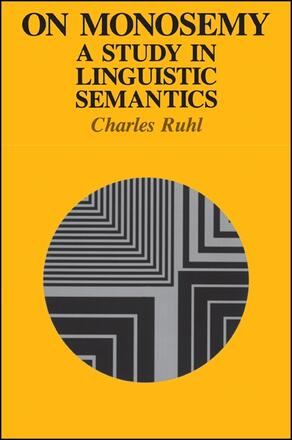
On Monosemy
A Study in Linguistic Semantics
Alternative formats available from:
Description
In this book, the author argues that words should be presumed initially to be monosemic: having a single, highly abstract meaning. Semantic research should first seek a unitary meaning, resorting to polysemy, homonymy or idiomaticity only when an extended attempt fails. Utilizing a large data base, this book shows that some supposed "lexical" semantic meaning is actually pragmatic or extralinguistic. Included are extensive treatments of the verbs bear, hit, kick and slap, the phrase take off, and the noun ice.
Ruhl studies linguistic research methods and theory, most directly relevant to the fields of semantics and pragmatics, and also to lexicography, cognitive science, and artificial intelligence. The hypothesis of monosemy implies significant changes of perspective and application for all fields which deal in lexical definition.
Charles Ruhl is Associate Professor of English at Old Dominion University.
Reviews
"Many of the themes of the book are new and innovative. The value of the book is in its principles of semantic analysis and its fresh perspectives. The book is critical of current work without being hostile or polemical like much of recent work in linguistic semantics. Ruhl's positions are well-argued and supported by sentence data from actual texts rather than from made-up sentences. The book continues a tone of theory development that Ruhl has been following in published articles during the last 15 years or so. It will have a definite impact on the field of semantic analysis and move linguistic semantics closer to the interpretations of meaning in the other social sciences. For example, work on metaphor, work on discourse, and work on emergent grammar. This topic is especially current right now and it is very central to the on-going controversy involving semantic interpretation, either as multiple meaning or unified meaning of words. I would like to underscore the importance of the book and its insights. I think it is a really good book. " — James Copeland, Rice University